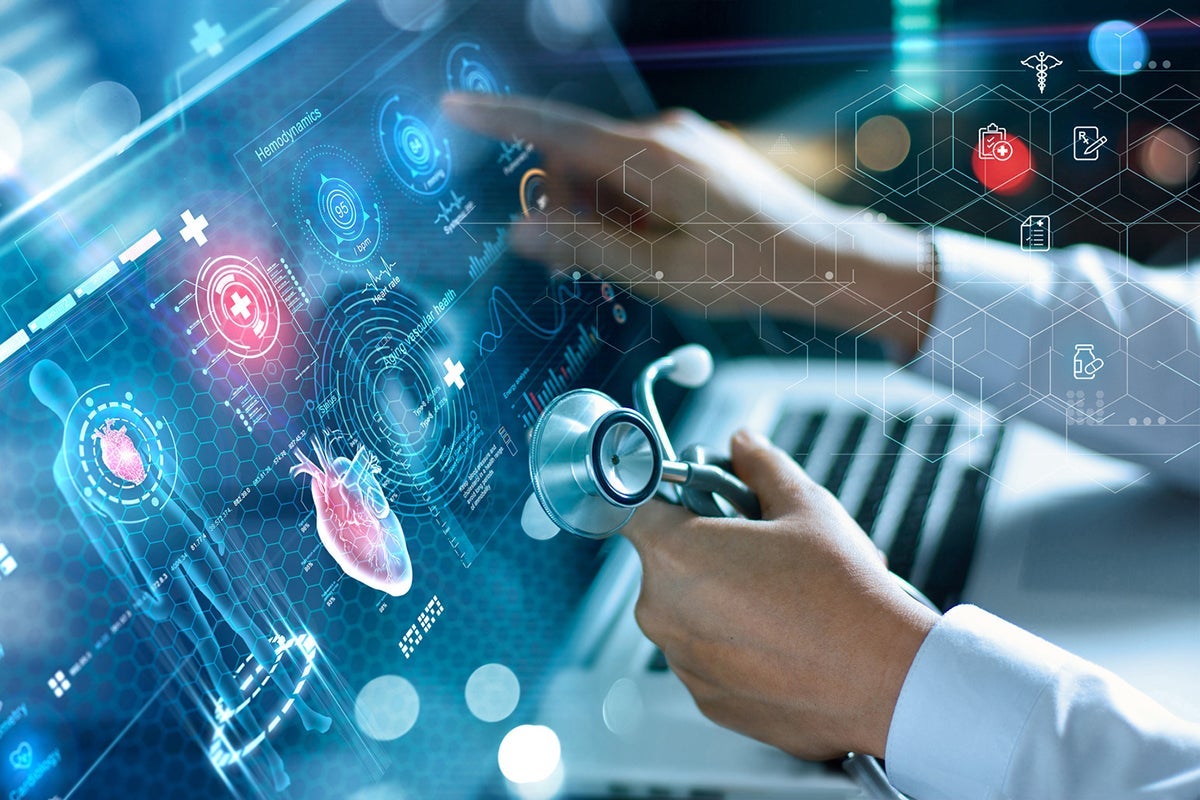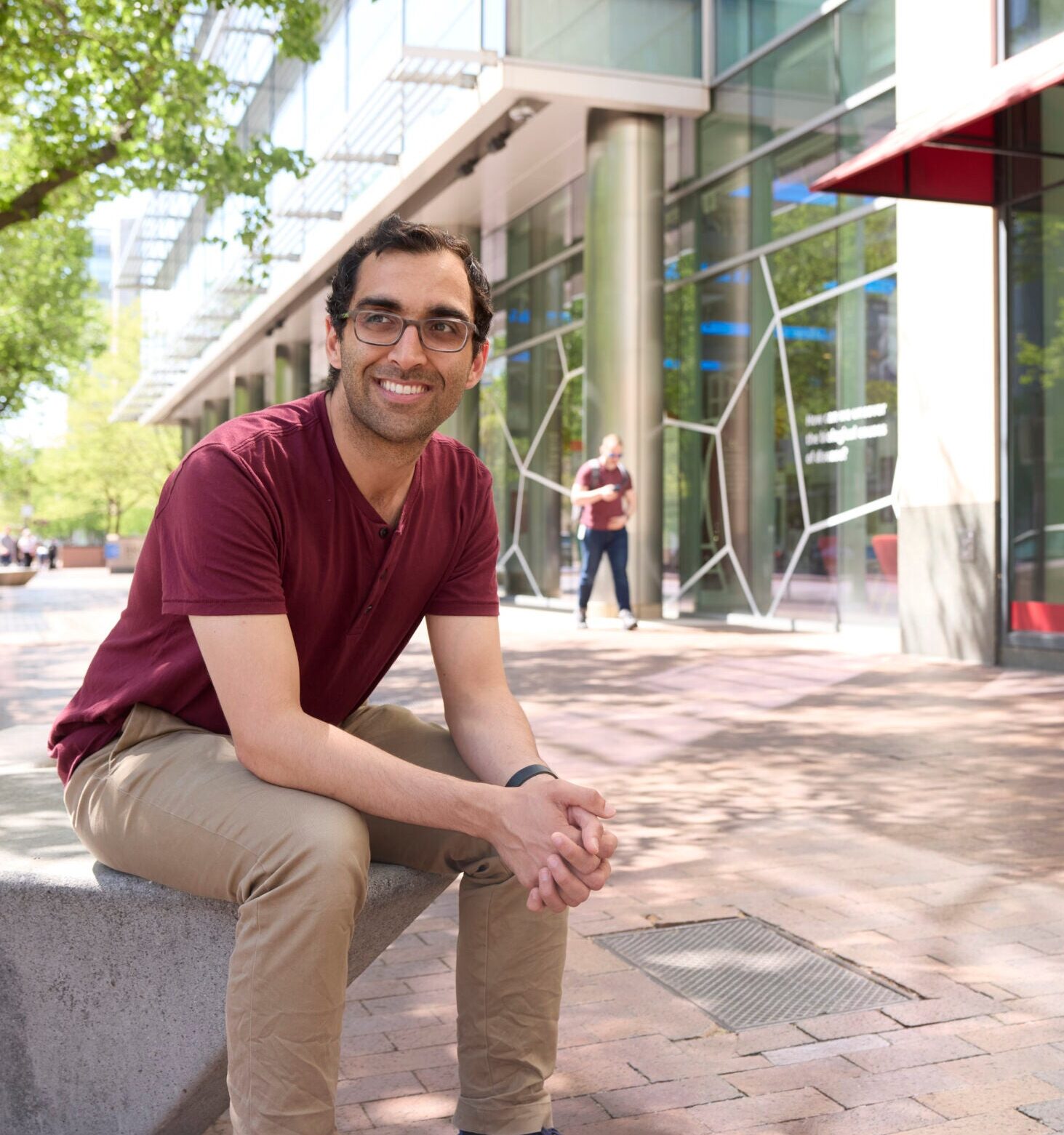New journal, podcast take a closer look at artificial intelligence in medicine

March 30, 2023 – Artificial intelligence (AI) has the power to change medicine and public health for the better, improving everything from diagnostics to treatment decisions to healthcare access, according to Harvard T.H. Chan School of Public Health’s Andrew Beam. But there’s also a need to proceed with caution in using this powerful tool, he said.
Beam, assistant professor of epidemiology, is playing a key role in two companion efforts from NEJM Group—publisher of the New England Journal of Medicine—to explore the use of AI in medicine. He is serving, along with Harvard Medical School’s Arjun (Raj) Manrai, as co-deputy editor of NEJM AI, a journal that will publish its first articles this fall. Isaac (Zak) Kohane, founding chair of the Department of Biomedical Informatics in the Blavatnik Institute at Harvard Medical School, will be the editor-in-chief of NEJM AI.
A March 29 NEJM editorial—co-authored by its editor-in-chief, Eric Rubin, and former editor Jeffrey Drazen, along with Beam, Kohane, Manrai, and colleagues—discusses the launch of the new journal. “There’s enormous interest in the subject and we are now publishing a series of AI in Medicine articles in the Journal,” said Rubin. “And with the expected growth and potential impact of AI in all aspects of health care, we see a need for a dedicated journal and we are thrilled to have Zak, Andy, and Raj’s expert leadership for NEJM AI.” Beam added, “We want to be the place where high-quality evidence for medical AI is published.”
In addition, Beam and Manrai are co-hosting a podcast called NEJM AI Grand Rounds exploring the deep issues at the intersection of AI, machine learning, and medicine. The podcast, which features guest experts, launched in December and just posted its fourth episode.
The launch of the journal and podcast come at a critical time, said Beam. In recent weeks, AI—technology that enables computers to perform “human” tasks such as visual perception, speech recognition, and decision-making—has been making plenty of headlines. Chatbots have been writing everything from credible college essays to emails to news articles, and having odd conversations with reporters. AI is also being used to create “deep fake” videos full of misinformation. But in the arena of medicine, AI—used thoughtfully—can be an enormously valuable tool, said Beam.

“AI used to be hypothetical, in the future. But over the last two years, it has changed,” he said. “AI is here. Everyone knows about ChatGPT [an AI tool that enables human-like conversations with the chatbot]. But health care is different because patient lives are on the line. The stakes are higher in medical AI than in other kinds of AI. That really spurred me, Zak, and Raj to join this journal—to think seriously about a place to really kick the tires and understand when medical AI can be safely used.”
The first three episodes of the podcast focus on three distinct areas of medicine. The first features Stanford Medicine’s Euan Ashley speaking about AI, genomics, and cardiology. In the second, Harvard Medical School’s Pranav Rajpurkar discusses AI and radiology. The third features Verily’s Lily Peng talking about AI in ophthalmology. Peter Lee, who leads Microsoft Research, speculates on how technologies like ChatGPT will transform medicine in the most recent episode.
Beam thinks listeners will find the interviews interesting and informative. “[Ashley and his colleagues are] asking questions such as, ‘Can we get AI to read an echocardiogram in the same way that human cardiologists do?’” Beam said. “They’ve also found that AI can extract signals [from echocardiograms] that people can’t, such as biomarkers indicating anemia.”
Similarly, AI can look at retinal scans and detect problems that an ophthalmologist would not be able to see, Peng told Beam during their conversation. “Retinal scans are typically used to look for evidence of vascular damage, such as a condition known as diabetic retinopathy, which can cause eye damage and blindness,” Beam explained. “But Lily and her colleagues asked, ‘What else can we do with this data?’ And they actually showed that AI could predict someone’s blood pressure, their smoking status, their age, even their gender, as well as their cardiovascular risk, from a picture of their retina.”
Peng also spoke about the technology’s potential public health benefits. She noted that her team ran a trial in Thailand—where there aren’t a lot of trained ophthalmologists—that found that AI performed well in screenings for diabetic retinopathy in that population, and could potentially help people get diagnosed and treated more quickly.
Aside from its promise, AI also poses serious challenges when used in medicine, Beam acknowledged. For instance, AI may be able to help increase access to medical advice in lower- and middle-income countries, but there could be potential for harm if the interventions aren’t rigorously validated before they are deployed in those populations.
In addition, said Beam, “There are structural biases baked into systems like ChatGPT because of the data they’re trained on—which is literally the entire Internet, which doesn’t always reflect our best selves,” said Beam. “So we have to make sure that AI doesn’t operationalize those biases on a large scale and hurt populations that are already at the fringes of the healthcare system.”
photo: iStock/ipopba


